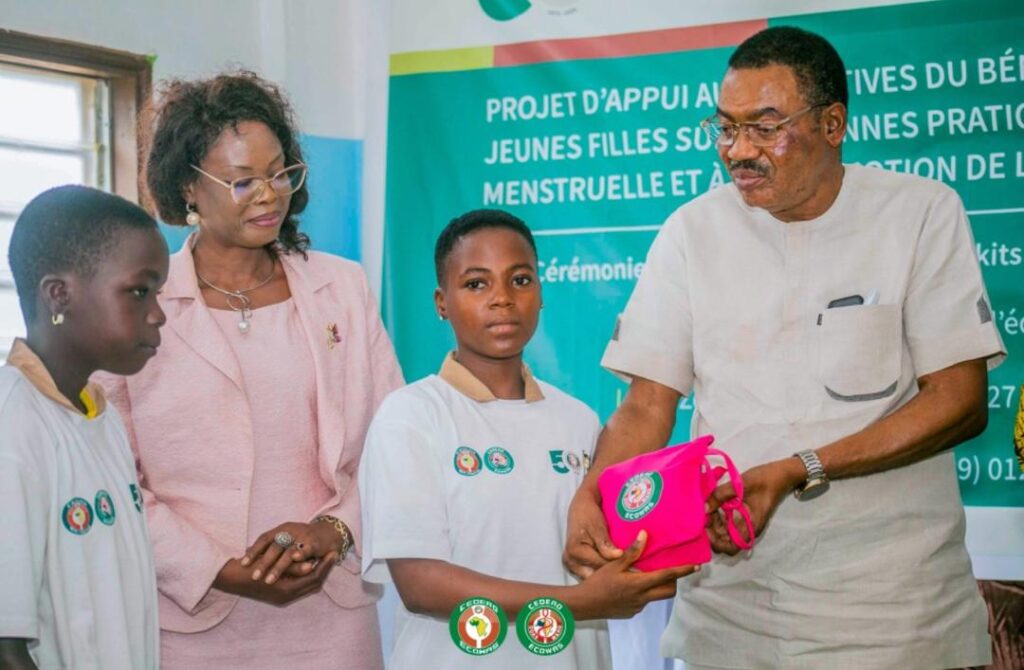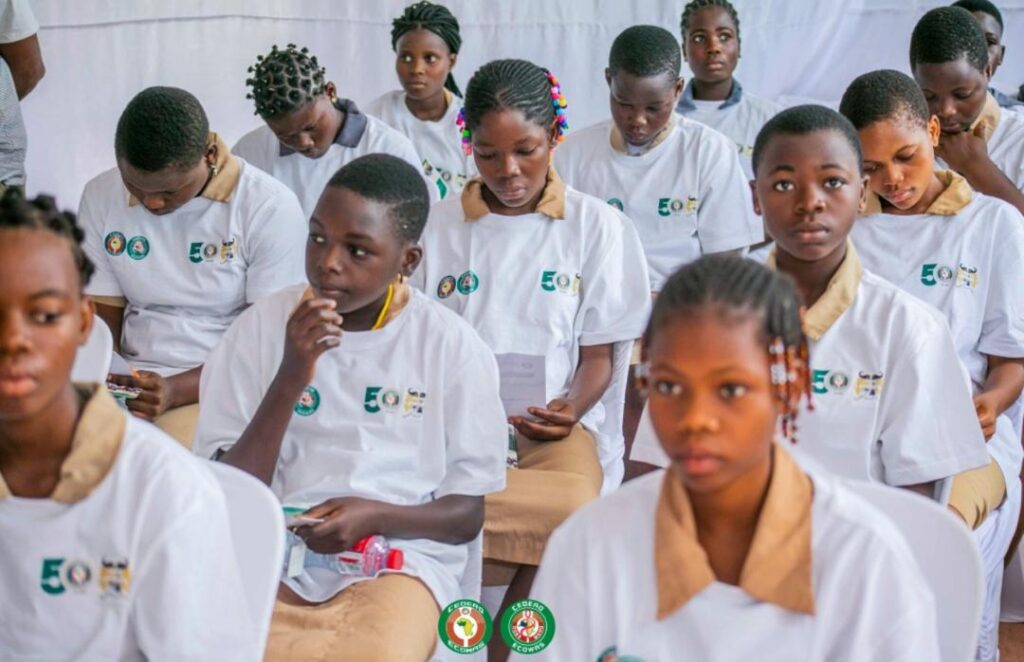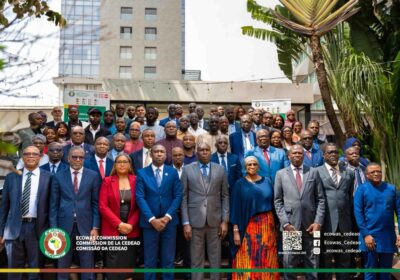Menstrual Hygiene Launch: ECOWAS Commits to Promoting Dignity of Benin Republic Schools Girls, Distributes 5,000 Sanitary Pads.
By Raymond Enoch
In a bid to promote gender equity, enhance effective health education among adolescent youth and young girls empowerment, the Economic Community of West African States (ECOWAS) has officially launched a major initiative to combat menstrual poverty in Benin, distributing 5,000 reusable sanitary towel kits to schoolgirls across 23 secondary schools.

The symbolic handover ceremony, held on June 27 in Zé, marked a significant milestone in the regional project titled “Support for Benin’s Initiatives to Raise Awareness Among Young Girls on Good Personal and Menstrual Hygiene Practices and for the Promotion of ECOWAS Among Young People.”
Funded by the West African Health Organisation (WAHO), the project aims not only to address the deeply rooted issue of menstrual insecurity but also to elevate the self-esteem of adolescent girls, ensure uninterrupted education, and deepen youth awareness of ECOWAS values and integration goals.

Mr. Mamadou Konate, speaking on behalf of the ECOWAS Resident Representative in Benin, underscored the initiative’s alignment with ECOWAS Vision 2050. “Menstrual hygiene is a matter of dignity, health, and social justice. Under no circumstance should it ever be a barrier to schooling or to young girls’ self-esteem,” he affirmed to a crowd of officials, students, parents, and community leaders.
The reusable kits—produced locally to promote sustainability and economic inclusion—will be fairly distributed by the Guichets Uniques de Protection Sociale (GUPS) of Zè and Djidja, in collaboration with the Departmental Directorates of Social Affairs.
In a notable show of cross-sector collaboration, the kits were first symbolically handed to the Ministry of Social Affairs and Microfinance and subsequently transferred to local departmental offices for school-level distribution. The 23 secondary schools selected span the Atlantic and Zou regions.
Beyond distribution, the event also served as a knowledge platform. Pupils, teachers, and school supervisors received training and participated in interactive sessions centered on menstrual hygiene and ECOWAS’s broader mission of human development and regional solidarity.
Speaking during the event, a young spokeswoman for the beneficiaries described the donation as “a life-changing gesture” that brought both practical relief and emotional support. “We feel seen, we feel respected,” she said, encouraging her peers to “never give up on their dreams.”
The ceremony concluded with a symbolic handover of kits to several students, group photographs, and interviews with media representatives, signaling a community united in purpose: giving girls the dignity and tools they need to thrive.
As ECOWAS continues to implement Vision 2050 across the region, this initiative stands as a shining example of how inclusive development begins with the basics—dignity, education, and opportunity for all.









